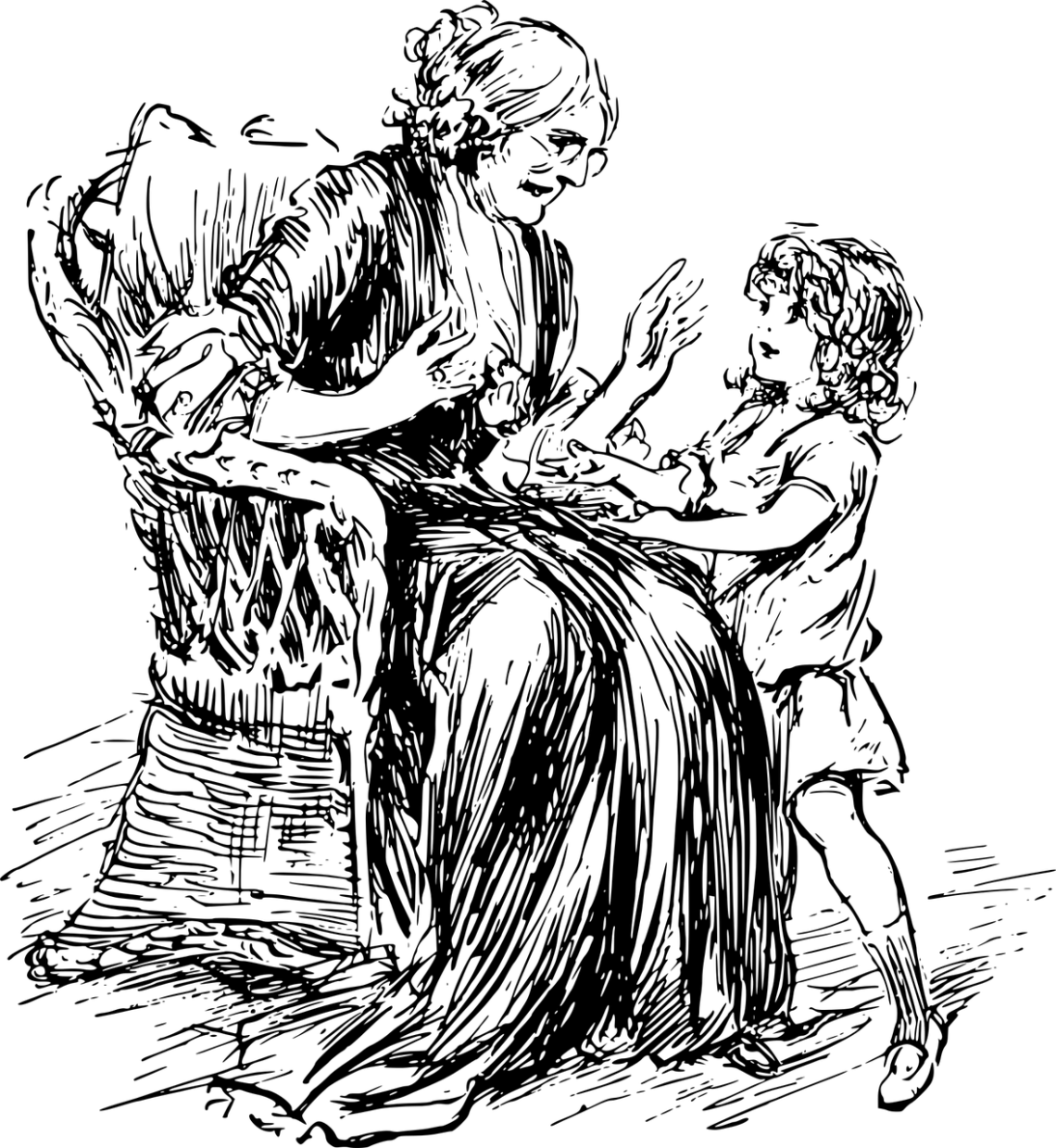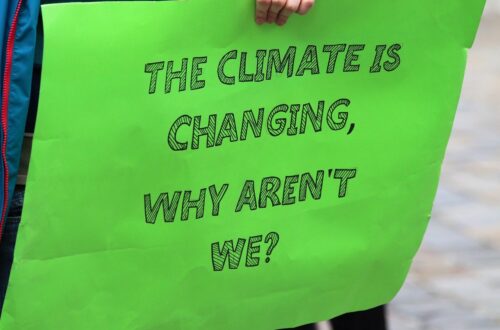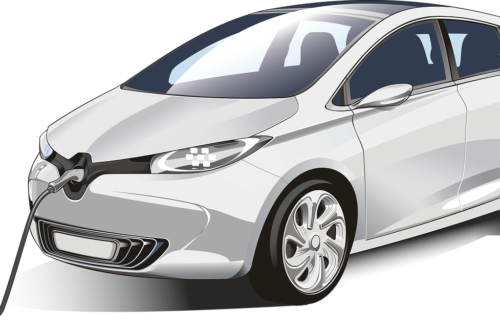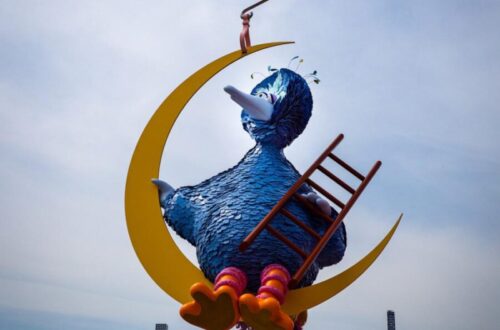(This is a conversation between a future being who wants to understand what was happening in the late twentieth and early twenty-first centuries and her ancestor who was experiencing the effects of climate change.)
“Grandmother, what was it like then, in the days when people didn’t understand about climate change and lots of people didn’t even believe it was real? What happened?”
“Oh, my darling child, I understand why you want to ask those questions. It is difficult to imagine that, despite the number of years scientists had been studying the changing climate and issuing warnings, so many people looked away. That was partly because the changes to the climate took a long time to become evident and were not easily recognized at the beginning. Please try to understand that the whole idea was overwhelming and frightening, so it was easier to pretend it wasn’t happening. Also, many did not want to admit that overconsumption of the planet’s resources was one of the leading causes. And the corporations causing the greatest harm weren’t willing to change their practices, although they had known about the damage they were causing for a long time. But the profits were most important.
“Grandmother, were you scared? What did you and Grandfather do?”
“Yes, it was scary to us. We were very distressed because not enough was being done quickly enough to address the situation. We thought about how the climate problems would impact the coming generations, generations like yours didn’t deserve to have their futures be less promising than ours. We read books and took classes to learn what was causing the disruptions. Since the beginning of the Industrial Revolution, people have burned more and more fossil fuels and changed vast areas of land from forests to farmland for crops. They didn’t understand how necessary the forests were for capturing and storing carbon. Nature has a balance, and its systems can break down when that is disturbed.
‘We kept educating ourselves. We wondered why the governments weren’t sounding the alarm. If we wanted change to happen, we had to be the change, too. Human activity was the main cause of climate change. The “growth economy” was touted as beneficial for everyone, but that overlooked the impacts of spending too much of Nature’s capital. We lost sight of how natural systems function* (see links at end of article). One of the most important things we learned was the severe impacts of overconsumption. Would a practice cause benefit or harm? Every action has a consequence, either positive or negative. Would it cause harm or benefit? We started thinking upstream instead of downstream, looking at the bigger picture.
“What does that mean, Grandmother?”
“It means that over time, we had lost touch with where our things came from and how they were made. How far had an item been shipped, and how was it made? What kinds of resources – water, fuel, energy, etc. were involved in each product? Did we truly even need it, considering its impacts? Could we reuse it? Could we make it last longer? Could we borrow and share? Was it wise to use products made of petroleum-like plastics that were going to be thrown away after one use? Why not use durable items that last a very long time? How much of the planet was really ours to use up? Who are we to waste the planet!? Even the smallest changes helped, and we kept finding more ways to preserve and conserve Nature’s resources.
“We were especially mindful about conserving water. We realized that water and all the other resources weren’t just our own. They belonged to all of us, to everyone, and every one of us needed to care about each other and help each other. No more letting precious, clean water gush down the drain or using it to wash cars. We developed affordable systems to conserve and reuse water, such as greywater systems for gardens. No more throwing food waste in landfills and creating methane gas which is much more harmful than carbon dioxide. Instead, it was used for compost to enrich soil for organic and biodynamic farming, which is more beneficial than industrial farming methods. We gave up lawns in favor of growing flowers for pollinators and food for ourselves and the community.
“Grandmother, I read that there were many fires and storms.”
“Oh yes, that is true. I remember two summers in the early 2000s when the skies were orange and dark gray with smoke. We had to stay inside because of the heat and the smoke, and I felt so grateful to have air conditioning and so sad for the people who didn’t have it. Terrifying hurricanes swamped many coastal areas because of the warming of the oceans. Insurance companies had to reevaluate their practices because of all the disasters. (See link at end of article)
“For a long time, it seemed that not enough was happening fast enough. But then there was a shift during the early- to mid-2020s, with everyone and everything finally coming together, a veritable tipping point. There were more and more young people taking action. Greta Thunberg helped start the youth movement, and many groups followed. (See at end of article) An organization in England pursued the crime of ecocide as a crime against humanity:
“The rules of our world are laws, and they can be changed. Laws can restrict, or they can enable. What matters is what they serve. Many of the laws in our world serve property – they are based on ownership. But imagine a law with a higher moral authority… a law that puts people and the planet first. Imagine a law that starts from first do no harm, stops this dangerous game, and takes us to a safe place of safety….” Polly Higgins, 2015
“Eventually, new cleaner ways of producing energy became cost-effective. Electric cars and trains, and other alternative types of transportation became practical. There were incentives to have solar panels, heat pumps, and other efficient appliances. Planting trees for shade and carbon sequestration became commonplace in all areas. One of the best changes was that we developed more community and worked to help each other. By doing that, we became a stronger society. We all recognized our obligation to the future and wanted the best for the generations to come.
“Grandmother, we are so grateful to all of you who believed that changes could be made and worked for a better future for us who followed. Thank you for being so caring.”
“The task of saving the planet will involve a great reckoning with ourselves – with our all-too-human reluctance to sacrifice immediate comfort for the sake of the future.” – from We Are the Weather by Jonathan Safran Foer

Betty Shelley
Betty Shelley is a Master Recycler (class #2), a former Metro Recycling Information Specialist, an Agent of Change, and the founder of Reduce Your Waste Project. Betty found Northwest Earth Institute in 1993 when it was founded in Portland. The NWEI discussion courses made her more aware of the choices we make as well as the consequences of those choices. Since 2006, Betty and her husband, Jon, have had just one 35-gallon can of garbage per year. The Shelleys offer the class “Less is More: Getting to One Can of Garbage a Year”.






